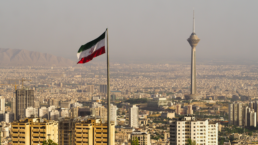Netanyahu must know Tehran will respond militarily to the attack on its embassy in Syria, the question is whether American troops will be a target.
by Paul R. Pillar, Responsible Statecraft
The latest Israeli heightening of violence in an already violent region presents the Biden administration with one of its biggest challenges yet in keeping the United States out of a new Middle East war.
Israel’s bombing of an Iranian diplomatic compound in Damascus, killing a senior commander in Iran’s Revolutionary Guard Corps and several other Iranian officials in addition to at least four Syrian citizens, was a marked escalation. Besides being as much an act of aggression in Syria as many previous Israeli aerial attacks, hitting the embassy compound constituted a direct attack on Iran.

Iranian leaders will feel heavy pressure to respond forcefully. The extent of that pressure can be appreciated by imagining if the roles were reversed. If Iran had bombed an embassy of Israel or the United States, a violent and lethal response would be not just expected but demanded by politicians and publics alike.
In Iran, too, popular sentiment can play a similar role in such situations, as illustrated by the outpouring of public emotion when a U.S. drone strike assassinated prominent Revolutionary Guard commander Qassem Soleimani four years ago. In a more calculated vein, just as a need to “restore deterrence” is often heard as a justification for violent responses by the United States or Israel, so too can such calculations figure in Iranian decision-making.
Recent Posts
“Arrest Now, Ask Questions Later”: Why Did L.A. ICE Agents Arrest and Jail U.S. Citizen Andrea Velez?
July 3, 2025
Take Action Now “They didn’t have vests that said ICE or anything. Their cars didn’t have license plates. … Just because of the color of our…
Trump’s Big, Beautiful Bill Is Naked Class War
July 3, 2025
Take Action Now Trump’s “Big, Beautiful Bill” trades tax cuts on millionaires for the dissolution of society.By Hamilton Nolan, In These Times…
Mayor Mamdani’s First Day, A Zero Hour Conversation With Richard Wolff
July 2, 2025
Take Action Now If elected, what would Mayor Mamdani do on his first day in City Hall? How would a democratic socialist govern as a big-city mayor?……
The U.S. Is Funding A Bloodbath At Gaza Aid Centers
July 2, 2025
Take Action Now The admin just gave $30M to GHF, the organization at the center of charges that Israel is weaponizing assistance and shooting at…




